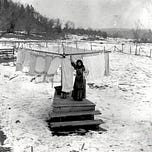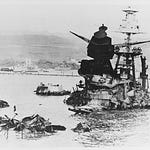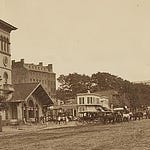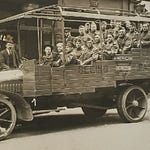hard lessons
In 1959, Fidel Castro came to power in an armed revolt which overthrew the Cuban dictator, Fulgencio Batista.
Castro quickly aligned with the Soviet Union, seized American and foreign-owned assets, and declared himself a Communist.

Alarmed, the Eisenhower Administration approved a plan devised by the CIA in 1960 to train Cuban exiles to infiltrate Cuba and start a revolution.
The goal was to overthrow Castro and install a non-communist government friendly to the US.
President Kennedy authorized the Cuban invasion plan in February 1961, shortly after assuming office.
The operation, known as the “Bay of Pigs,” would take place in April.
But the operation was beset with problems.
Castro’s forces crushed the invasion force in just two days and captured more than 1,100 men.

In the aftermath of the failed invasion, Kennedy met with former President Eisenhower at Camp David.


Eisenhower described the meeting in his diary, including the timeless advice he gave Kennedy for negotiating with America’s adversaries.


From Eisenhower’s diary:
“[T]o keep your position strong at the conference table you had constantly to let the enemy see that our country was not afraid,
“[and that] we believe in what is right and attempt to insist upon it.”
Kennedy addressed the failure of the Bay of Pigs operation publicly in an address to the American Society of Newspaper Editors.
He cast the mission as another “episode in the eternal struggle of liberty against tyranny.”
His speech offers more timeless advice which applies to the existential threat Russia currently poses to Ukraine and Eastern Europe.
From Kennedy’s speech1:
“[For] too long we have fixed our eyes on traditional military needs, on armies prepared to cross borders, on missiles poised for flight.
“Now it should be clear that this is no longer enough—
“— that our security may be lost piece by piece, country by country, without the [firing] of a single missile or the crossing of a single border.
“[T]he forces of communism are not to be underestimated, in Cuba or anywhere else in the world.
“The advantages of a police state—
“— its use of mass terror and arrests to prevent the spread of free dissent--
“cannot be overlooked by those who expect the fall of every fanatic tyrant.
“[I]t is clearer than ever that we face a relentless struggle in every corner of the globe…[involving] subversion, infiltration, and a host of other tactics,
“[which] steadily advance, picking off vulnerable areas one by one in situations which do not permit our own armed intervention.”
And a final warning:
“If the self-discipline of the free cannot match the iron discipline of the [chain]mailed fist…then the peril to freedom will continue to rise.”
******************************
I’ll see you tomorrow.
— Brenda

















